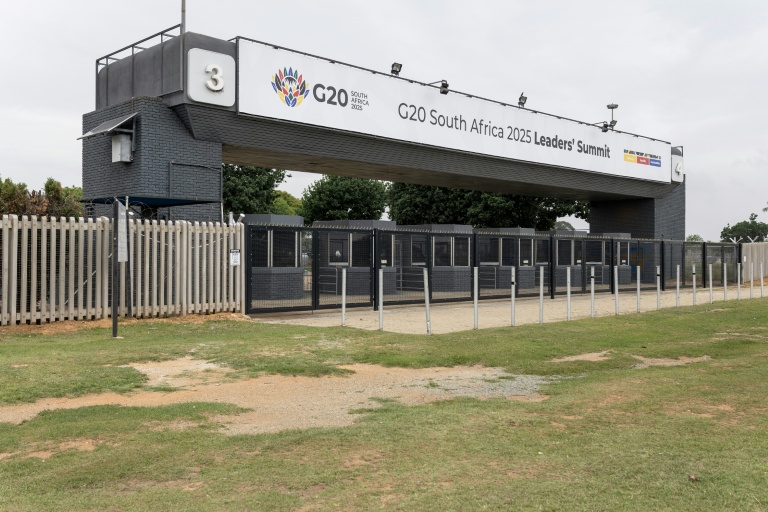Trump’s Withdrawal from G20 Summit: A Controversial Stance
Former President Donald Trump recently made headlines by announcing that no U.S. officials will attend the upcoming G20 summit in South Africa. This announcement comes on the heels of his controversial statements regarding the treatment of Afrikaners—descendants of early European settlers—claiming they are being systematically “killed and slaughtered” in the country. Trump’s comments shed light on ongoing debates about race relations, political representation, and international diplomacy.
The Decision Not to Attend
Initially, Trump had indicated that Vice President JD Vance would represent the United States at the G20 summit. However, he later revealed that U.S. representatives would skip the event entirely. Utilizing his Truth Social platform, Trump expressed his displeasure, stating, “It is a total disgrace that the G20 will be held in South Africa… No U.S. Government Official will attend as long as these Human Rights abuses continue.”
Claims of Persecution
Central to Trump’s rationale is his assertion that Afrikaners are facing egregious human rights violations, including land confiscations and violence. He remarked on social media about the plight of Afrikaners, claiming their existence is under threat. This narrative taps into broader themes of white victimhood in a post-apartheid South Africa, which many experts and commentators argue is misleading and unsupported by evidence.
South Africa’s Response
In response to Trump’s accusations, the South African foreign ministry branded his claims as “regrettable.” They emphasized that characterizing Afrikaners solely as a white group does not reflect historical realities and that allegations of widespread persecution lack factual basis. The foreign ministry reassured that South Africa is prepared for a “successful” G20 summit scheduled for November 22-23, with a theme centered on “Solidarity, Equality, Sustainability.”
A History of Tension
Trump’s criticism of South Africa is not new. Since returning to the political forefront, he has spotlighted issues affecting South Africans, particularly around the topic of land reform and alleged violence against white farmers. This narrative has been shown to resonate with certain audiences in the U.S., fueling discussions about race that often lack nuance and an understanding of South Africa’s complex socio-political landscape.
Political and Economic Ramifications
Trump’s remarks come amid heightened tensions between the United States and South Africa, exacerbated by other geopolitical issues. For instance, the two nations clashed over South Africa’s stance on Israel and their involvement in international deliberations accusing Israel of genocide in Gaza. Furthermore, under Trump’s administration, tariffs on South Africa rose to 30 percent—the highest in sub-Saharan Africa—adding an economic dimension to the diplomatic strife.
The Future of U.S.-South Africa Relations
With Trump indicating a desire to host the 2026 G20 summit at his Miami golf resort, the implications for U.S.-South Africa relations remain uncertain. South Africa’s commitment to addressing global challenges through inclusivity and cooperation contrasts sharply with Trump’s narrative of division and alienation.
Conclusion: A Heated Dialog
As the G20 summit in South Africa approaches, the discourse around Trump’s comments serves as a microcosm of larger international dialogues involving race, governance, and human rights. South Africa, navigating its complex tapestry of history and identity, continues to seek a path forward while engaging with powerful narratives from abroad that impact its image and global standing.



